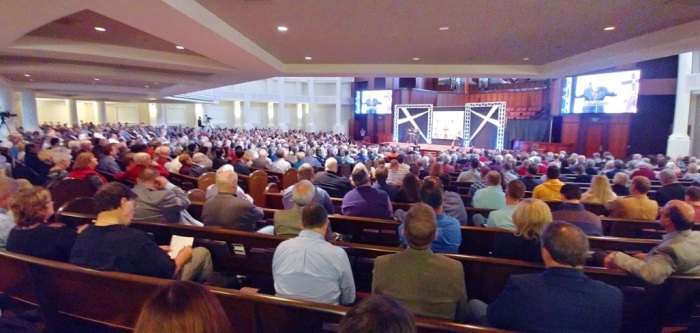Wesleyan Covenant Association denounces bishops’ claims it's ‘wrongfully influencing God’s people’

The Wesleyan Covenant Association has denounced a declaration by African bishops of The United Methodist Church calling for congregations on the continent to cut ties with the theologically conservative group.
Last week, a group of African bishops gathered at Africa University in Mutare, Zimbabwe, for four days and approved a statement denouncing the current direction of the Africa Initiative, a UMC advocacy group.
According to the statement, the Initiative was “now working with Wesleyan Covenant Association to destroy our United Methodist Church” and had “lost its original goal of helping The United Methodist Church in Africa.”
“We will dissociate from any activities of the Africa Initiative and will not allow any activities of the Africa Initiative in our areas,” stated the bishops.
“We will not allow or entertain any activities of the Wesleyan Covenant Association who are wrongly influencing God’s people in our areas [and we] will not tolerate anyone giving false information about The United Methodist Church in our areas.”
WCA President Jay Therrell emailed The Christian Post a statement in response to the African bishops’ declaration. He said the group is “deeply disappointed, but not surprised, by the statement purported to come from all the African Bishops.”
“We believe strong-arm control tactics by some African bishops infringe upon the Christian freedom of their members to speak into the current and future direction of The United Methodist Church and their role in it,” the WCA stated.
“We remain committed to working with theologically conservative Methodists across the continent of Africa to empower their witness to the faith and their right to make informed decisions about their future in the church.”
WCA Africa Coordinator Simon Mafunda of Harare, Zimbabwe, said that the bishops’ declaration “left me flabbergasted.”
“This militant and combative position by some of these bishops does not proffer the unity and love for which they call. If anything, it opens a massive rift between them and the flock that they are supposed to look after,” Mafunda stated, as quoted in the WCA statement.
“To openly attack your own flock diminishes the essence of being ‘good shepherds’ that the bishops are supposed to exemplify. In Africa it is generally considered disrespectful to answer back to elders, but we feel pushed into a corner and unfortunately there is no longer any space behind us.”
In a separate statement provided to CP by Therrell, the Africa Initiative declared that it is “shocked, surprised, and ashamed” by the bishops’ statement, which it labeled a “declaration of war.”
The group affirmed its ties to the WCA, seeing this relationship as “consistent with the connectional nature of the UMC,” which involves advancing common goals with other Christian denominations and Wesleyan groups.
“Whatever the misunderstandings, we could have settled them around the ‘fire hart or under the palaver hut’ where African elders and their subjects meet to settle their disputes,” the Initiative stated.
“Instead, some of our leaders decided to go public with unauthenticated allegations.”
Over the past several years, the UMC has been embroiled in a divisive debate over whether the denomination should change its official position labeling homosexuality “incompatible with Christian teaching.”
Efforts by theological liberals to change the UMC's official stance have often failed in large part because of the influence of UMC Africans, who tend to be more theologically conservative.
In 2020, UMC leaders representing diverse theological views agreed to a plan to create a conservative Methodist denomination and allow churches opposed to same-sex marriage and gay ordination to join the new group.
Known as the “Protocol of Reconciliation and Grace through Separation,” the plan was to have a vote on legislation based on the protocol at that year’s General Conference.
But after repeated postponements of the General Conference, which eventually pushed the churchwide gathering to 2024, many conservative churches have since left the UMC for the newly launched Global Methodist Church.
In May, 92 UMC delegates who are members of the Africa Initiative gathered in Nairobi, Kenya, to learn more about the future of the UMC and details about the nascent GMC.
The Rev. Jerry Kulah of Liberia, general coordinator of the initiative, told those gathered that the meeting was meant to be primarily for information purposes.
“We brought you together to provide you with information that you will need to help yourself, your church and your annual conferences find a solution to the uncertainty in The United Methodist Church,” said Kulah, as reported by UM News.
















![[Ready to PUB] Christian psychologist: Kids must develop 'resilience' to fulfill God's purpose for them](https://cdn.christianpost.com/images/cache/thumbnail/25/92/259219_a_300_200_658_146.jpg)











